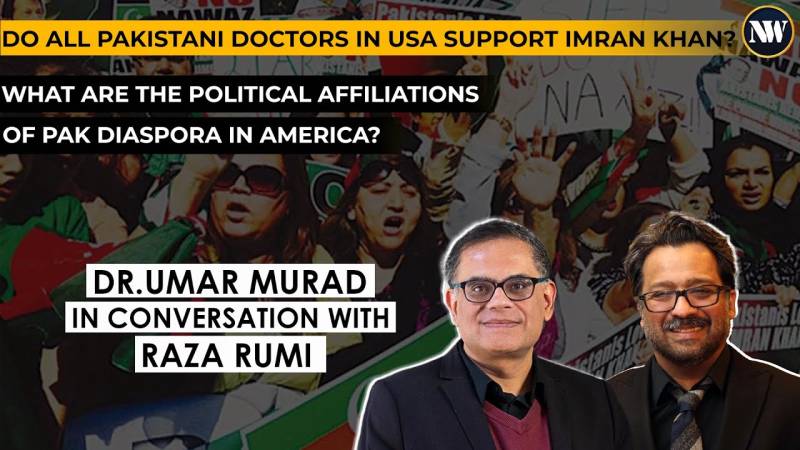In recent years, a significant wave of political mobilization has emerged within the Pakistani diaspora in North America, particularly in the United States and Canada. The focus of this mobilization centers around the charismatic figure of Imran Khan, the former Prime Minister of Pakistan. Social media platforms have been flooded with videos, tweets, and posts by Pakistani doctors residing in these countries, giving the impression that a vast majority of Pakistani physicians are fervently backing Imran Khan and his political agenda. However, beneath this seemingly unanimous show of support lies a more complex and nuanced reality.
Imran Khan, the cricketing legend turned politician, has had a profound impact on Pakistani politics. His anti-corruption rhetoric and promises of transformative change resonated deeply with a population weary of corruption and misgovernance. Dr. Umar Murad, a Pakistani American physician based in Kentucky, offers a unique perspective on this phenomenon. Dr. Murad suggests that while Imran Khan's rise to power did indeed inspire hope and attract a considerable following, it is important to critically assess the extent of support within the Pakistani diaspora.
The advent of social media has revolutionized the way political messages are disseminated and received. Dr. Murad emphasizes the potency of this platform in shaping public opinion, highlighting how videos and posts can sway perceptions and create the illusion of overwhelming support. The portrayal of a unified stance by Pakistani doctors in North America backing Imran Khan may not entirely reflect the diverse range of opinions within this community.
Dr. Murad underscores the fact that Pakistani doctors, like any other group, exhibit a wide spectrum of ideological perspectives. Some physicians are deeply religious, advocating for solutions rooted in the Holy Book, while others embrace progressive ideologies and secular philosophies, particularly after experiencing the benefits of secularism in their adopted countries. This ideological divergence leads to a variety of views on Imran Khan's policies and political approach.
The psychological complexities of diaspora identity play a significant role in shaping political affiliations. Dr. Murad explains how the guilt of being away from Pakistan and a desire to contribute to their homeland's well-being can motivate some individuals to passionately support Imran Khan, viewing him as a symbol of hope and change. This emotional attachment can sometimes overshadow critical analysis of the political landscape in Pakistan.
A central point of contention highlighted by Dr. Murad revolves around the dual narrative projected by Imran Khan. On one hand, he presents himself as a champion against corruption and a harbinger of progress, attracting a range of supporters from different backgrounds. On the other hand, his association with conservative elements and his failure to clarify his political manifesto create a dichotomy that remains unexplored by some of his ardent followers.
Dr. Murad delves into the complex relationship between Imran Khan and the Pakistani military. While many Pakistanis initially saw Khan's rise as a fresh departure from traditional politics, his subsequent compromises and alignment with the military have raised questions about his autonomy and the sustainability of his agenda. Dr. Murad highlights the historical context of military influence in Pakistani politics, cautioning against blind faith in any leader.
Amidst the fervor of political engagement, Dr. Murad emphasizes the importance of critical thinking and constructive dialogue within the Pakistani diaspora. He argues that blindly following any leader, even one as charismatic as Imran Khan, can lead to a myopic perspective that stifles open discussion and analysis. Dr. Murad urges diaspora members to engage in nuanced conversations that reflect the diversity of opinions within their community.

